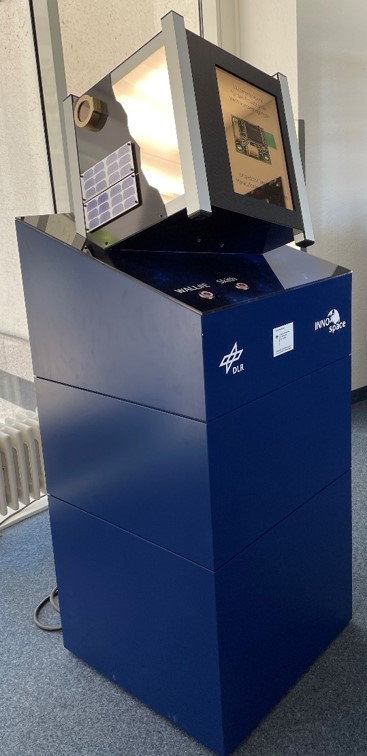Developing a new small satellite with innovative technologies
New technologies for satellite construction are being developed and tested as part of the planned INNOcube mission. These technologies can significantly reduce the mass of future satellites, speed up the assembly process and reduce costs. Until now, electronic equipment in satellites has been controlled via data cables. The aim of INNOcube is the in-orbit demonstration of an ultra-broadband radio technology (Skith) that enables wireless data transmission within a satellite. In addition, an innovative rechargeable battery (Wall#E) is being tested, which serves as a satellite structure and energy storage unit and is intended to replace power cables and conventional batteries in the long term.
Until now, the cable harness system for satellites was necessary, but also costly, difficult to integrate and a risk factor. Skith technology aims to enable the first wireless satellite that utilises miniature, short-range, high-speed, real-time radio links. The combination of modular and fault-tolerant software with ultra-wideband technology from Industry 4.0 is intended to result in a robust and adaptable system.
Wall#E integrates energy storage functions into the carrier structures of spacecraft, allowing the mass and volume of satellites to be significantly reduced without compromising performance. To this end, Wall#E uses fibre-reinforced structures interspersed with innovative solid-state battery materials. Although the initial focus of this project is on satellites, the underlying concept is transferable to launcher systems, space stations and ground-based applications, for example in e-mobility.
Both technology concepts won the INNOspace Masters competition. This enabled the two research ideas to be realised from scratch and a new type of satellite based on a completely new technology to be built and tested. The INNOspace Masters launched the partnership between the University of Würzburg and TU Berlin, which now enables both universities to verify their technology in space. The launch of the INNOcube satellite is scheduled for October 2024.
Links:
German Aerospace Center (DLR)
German Space Agency at DLR, Department of Innovation and New Markets
E-Mail contact-dlr@DLR.de
